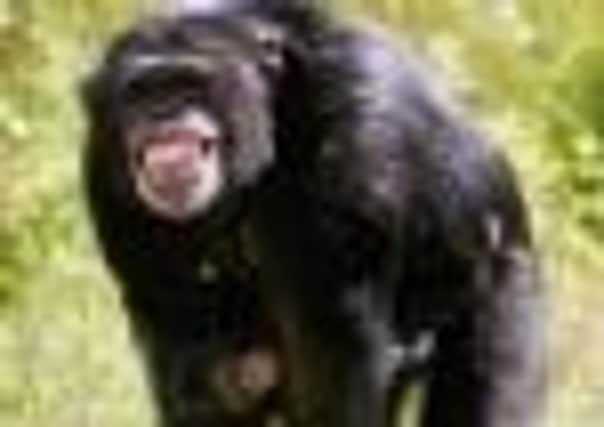How chimps display very human traits to keep each other safe


The discovery by researchers from the University of St Andrews challenges the idea that only humans can spot ignorance in others and take steps to keep them informed.
They found that wild chimps were more likely to sound a “watch out” alarm call about the presence of a snake when newcomers were around.
Advertisement
Hide AdAdvertisement
Hide AdIn a series of experiments, a model viper was placed in the path of a group of 33 wild Ugandan chimpanzees and the scientists watched their reactions.
When individual chimps detected the snake, they sounded an alert to warn others of their group within earshot. As other group members arrived, those in the know repeated the alarm call to ensure the new arrivals knew a snake was about.
Alarm calls were significantly more common if the caller was with group members who had either not seen the snake or had not been present when the initial calls were made.
They were less likely to repeat the call if their group-mates were already aware of the danger.
“Chimpanzees really seem to take another’s knowledge state into account,” said researcher Dr Catherine Crockford, from the school of psychology at the University of St Andrews.
“They voluntarily produce a warning call to inform audience members of a danger that they do not know about. They are less likely to inform those who already know about the danger.”
The findings, published in the journal Current Biology, are relevant to questions about the evolution of language, she said.
“Some have argued a crucial stage in this evolution occurred when individuals began producing vocalisations with the goal of informing and thereby reducing ignorance in others,” she said.
Advertisement
Hide AdAdvertisement
Hide AdThe research suggested more of the factors needed to kick-start complex communication were evident in chimpanzees than experts had previously suspected.
The research was carried out at the Budongo Conservation Field Station in Masindi, Uganda.
Dr Crockford added: “The advantage of addressing these questions in wild chimpanzees is that they are simply doing what they always do in an ecologically relevant setting; the task is always relevant.”
Vipers are highly dangerous to chimpanzees. However, the primates will think twice before giving out a warning call because the noise could attract the attention of predators or a neighbouring group of hostile chimps.
This ambush threat can be offset, however, when the call would be of sufficient benefit in warning group members of the danger of the snake.
Chimpanzees are the closest living relatives to humans, sharing more than 98 per cent of our genetic blueprint and a common ancestor who lived four to eight million years ago.